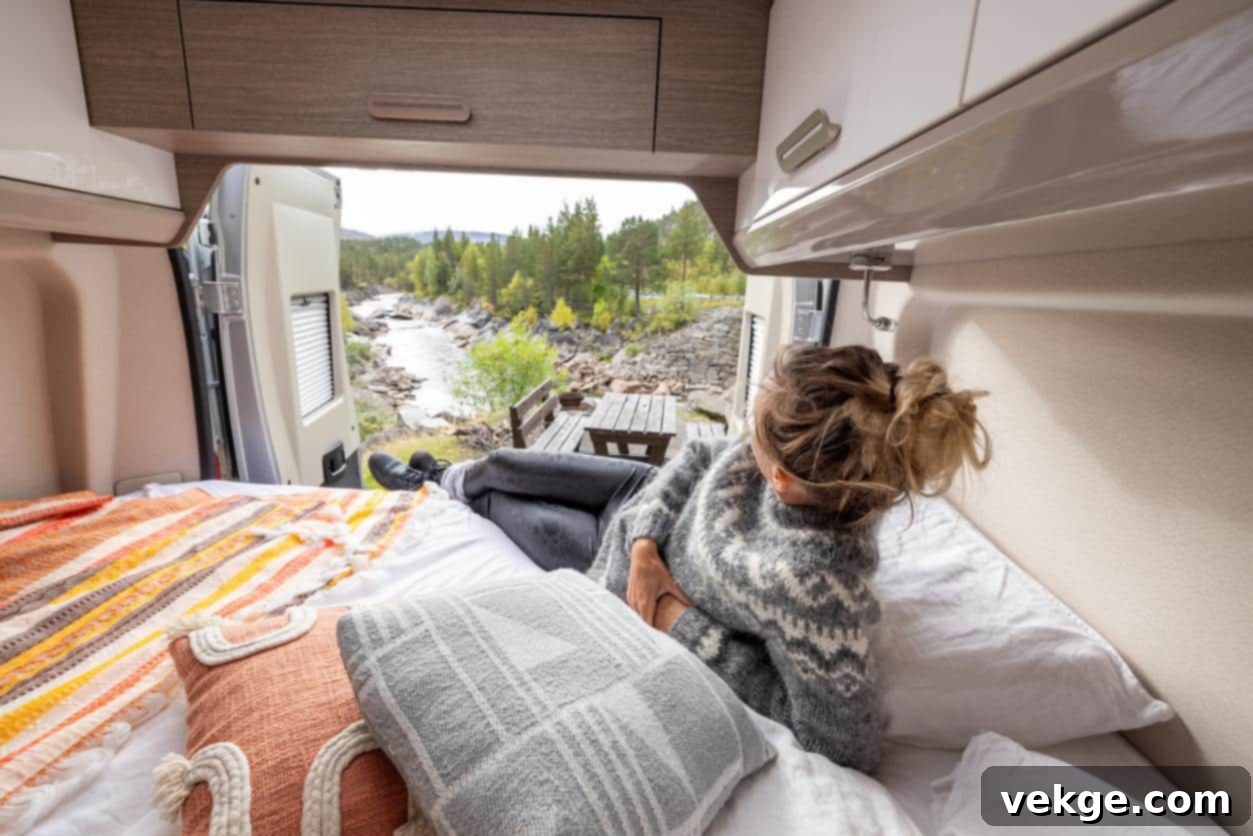Embracing Sustainable Off-Grid Living: Your Comprehensive Guide to an Eco-Friendly Lifestyle
Off-grid living has seen a remarkable surge in popularity over recent years, captivating individuals and families eager to cultivate greater self-sufficiency and significantly reduce their environmental impact. From the minimalist freedom of van life to the serene isolation of a woodland cabin, pioneers of this lifestyle are continually discovering innovative and resourceful methods to transform seemingly unconventional spaces into comfortable, sustainable homes. This growing movement represents more than just a change of address; it’s a conscious choice to live harmoniously with nature, minimizing reliance on centralized utilities and fostering a deeper connection to the planet.
While the allure of an off-grid home often lies in its self-contained comfort and independence, for many, the driving force is a profound concern for our planet. If you’re inspired to contribute positively to the environment, starting right from your off-grid dwelling, then this comprehensive guide is for you. We’ll explore practical, actionable strategies to make your sustainable living dreams a reality, ensuring your off-grid journey is as eco-friendly as it is fulfilling.
Strategic Location: The Foundation of Sustainable Off-Grid Living
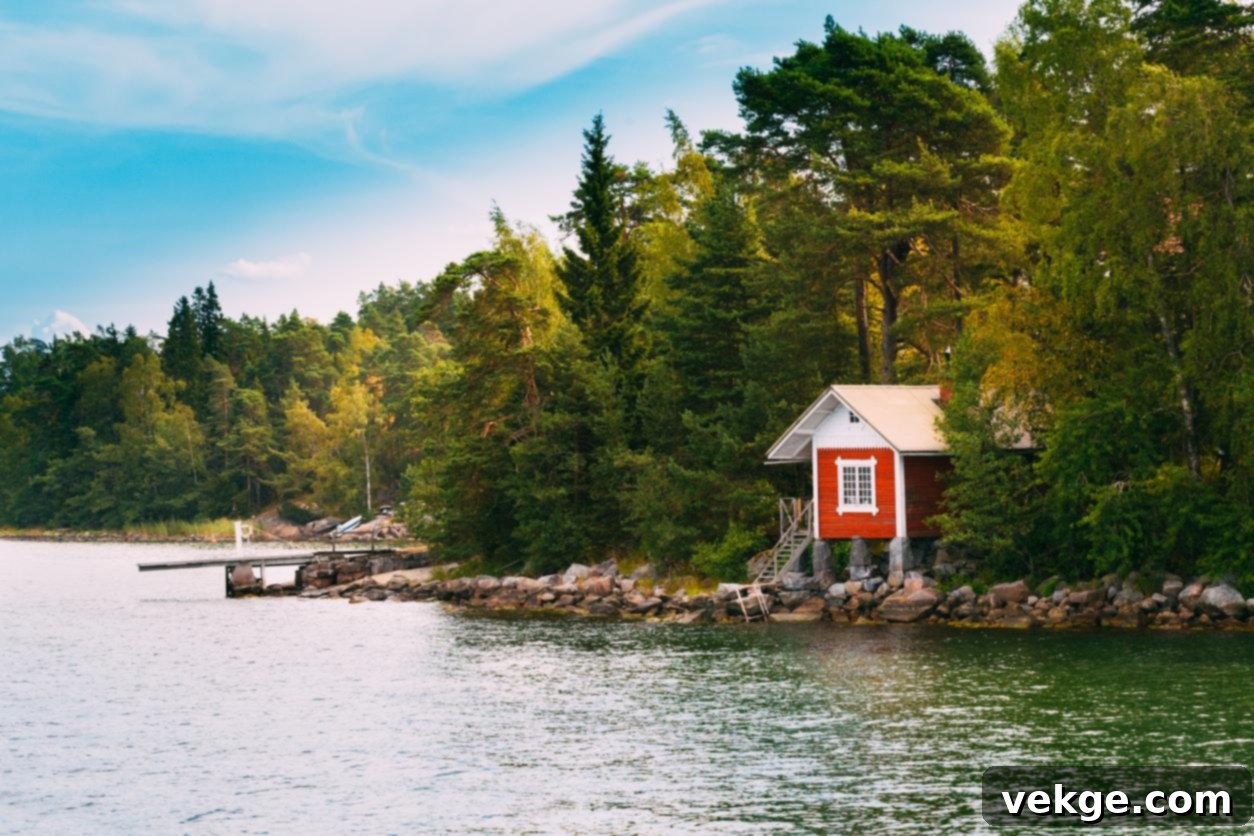
It’s no secret that the cornerstone of truly sustainable living is a deep awareness and appreciation of your surroundings. When you choose an off-grid lifestyle, this principle takes on even greater significance, as your environment becomes your primary source of sustenance and energy. Successfully harnessing the power of nature requires careful consideration of your chosen location and all the natural resources it has to offer.
When scouting for the ideal off-grid spot, several critical environmental factors demand your attention. Firstly, assess the climate and average sunlight hours; this is paramount for efficient solar energy capture. A location with abundant sunshine can significantly reduce your energy costs and increase self-sufficiency. Secondly, investigate nearby water sources, such as natural springs or areas prone to high rainfall, which are crucial for developing a reliable water supply system. Lastly, examine the soil quality around your potential home. Fertile soil is a tremendous asset for cultivating your own food, reducing your reliance on external food supply chains and minimizing the carbon footprint associated with transportation.
By thoughtfully evaluating these elements, you’re not just picking a place to live; you’re laying the groundwork for an efficient and sustainable ecosystem around your home. A well-chosen location empowers you to optimize solar energy production, secure your water needs through rainwater harvesting or well drilling, and potentially establish a thriving garden or even raise small livestock, truly embedding your lifestyle within the natural world.
Harnessing Nature’s Power: Embracing Renewable Energy Solutions
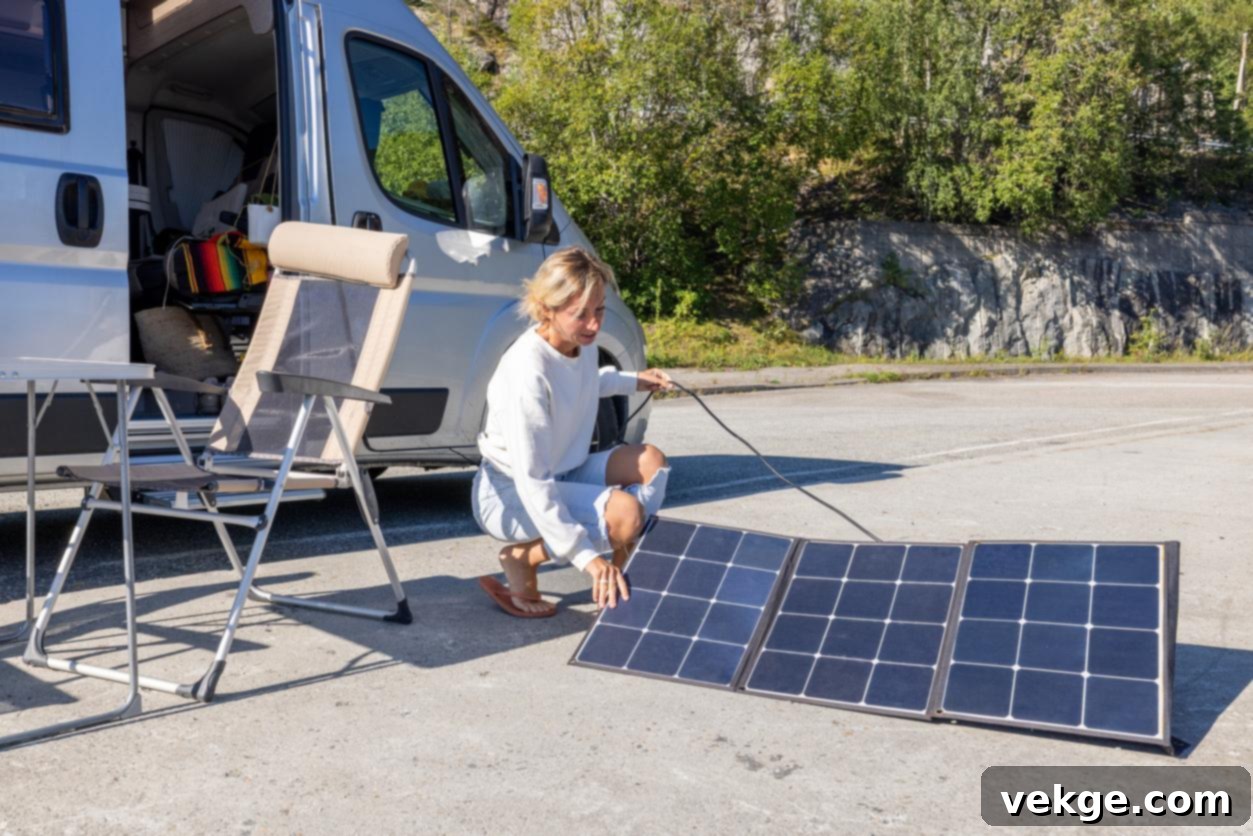
Once you’ve diligently assessed the suitability of your off-grid location, the exciting next phase of sustainable living begins: powering your home with clean, renewable energy. This is where your commitment to reducing your carbon footprint truly shines, moving away from fossil fuels and embracing the abundant resources nature provides.
You have a diverse array of options for your electricity supply. Solar power, utilizing photovoltaic (PV) panels, is perhaps the most widely recognized and accessible choice. For stationary homes, a robust rooftop solar array coupled with a battery storage system can provide reliable power day and night. Those embracing mobile off-grid lifestyles, such as van dwellers or boaters, can opt for more compact, portable solar systems that offer flexibility. If your location is characterized by consistent wind patterns, installing a small wind turbine can be an excellent complementary or primary energy source, converting kinetic energy into electricity. Before investing, it’s crucial to conduct a thorough wind assessment to ensure viability.
Beyond electricity, consider sustainable solutions for heating and cooling. Air source or ground source heat pumps are highly efficient systems that extract heat from the air or ground, respectively, to warm your home in winter and cool it in summer. These require sufficient space for installation and can represent a significant upfront investment, but their long-term energy savings and environmental benefits are substantial. For optimal energy management, remember that efficiency is key. Before investing in renewable energy systems, insulate your home thoroughly, seal air leaks, upgrade to LED lighting, and choose energy-efficient appliances. Reducing your overall energy demand first will allow you to design a smaller, more cost-effective renewable energy system.
It’s important to acknowledge that the initial investment in renewable energy technologies can be substantial. Researching the cost of solar panels, wind turbines, and heat pump systems is essential to determine their financial feasibility for your specific off-grid setup. However, many governments and local authorities offer grants, tax credits, or incentives for renewable energy installations, which can significantly offset the upfront costs. Over the lifespan of these systems, the savings on utility bills and the positive environmental impact often outweigh the initial expenditure, making them a wise long-term investment in sustainable living.
Water Wisdom: Mindful Water Management for Off-Grid Living
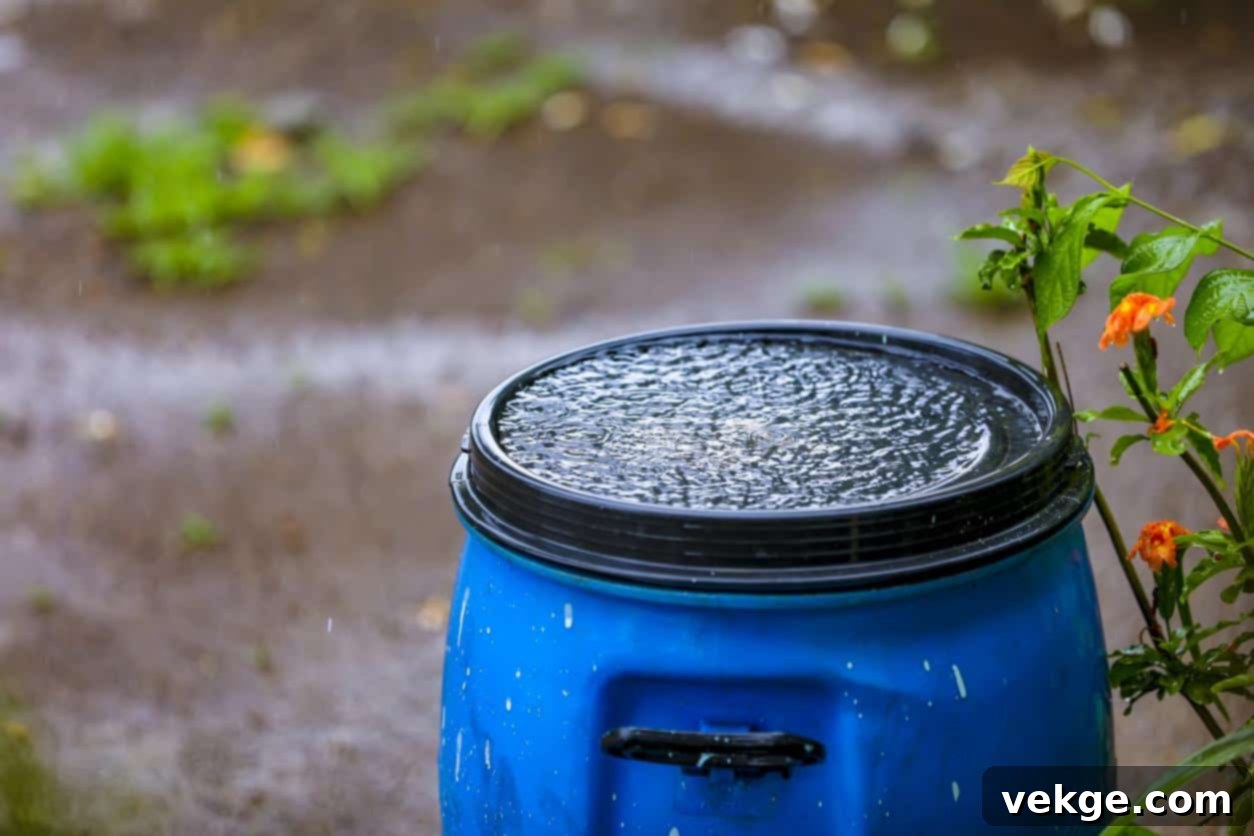
To truly embody an eco-friendly off-grid lifestyle, developing a robust and sustainable water management system is absolutely crucial. This ensures you not only safeguard precious natural resources but also maintain a consistent, clean water supply for your household, minimizing waste and environmental harm.
Rainwater harvesting stands as one of the most effective and accessible methods for off-gridders. By directing rainwater from your roof into storage tanks, you can accumulate a substantial reserve. Depending on your needs, this collected water can be filtered and purified for drinking, used for bathing and washing, or simply stored for irrigation. Investing in a multi-stage filtration system, potentially including UV sterilization, is vital if you intend to use rainwater for potable purposes. Another excellent strategy is exploring alternative sources like well drilling, provided you have the necessary permits and the geological conditions are favorable, or collecting from nearby natural springs, always ensuring the water is tested and treated for safety.
Beyond collection, water conservation is paramount. Install low-flow faucets, showerheads, and composting or low-flush toilets to drastically reduce your daily water consumption. Consider implementing a greywater recycling system, which collects water from sinks and showers (excluding toilet waste) and redirects it for non-potable uses like irrigating gardens. This closes the loop on water usage, significantly extending your supply. Regularly checking for and repairing leaks, taking shorter showers, and only running dishwashers and washing machines when full are simple habits that collectively make a massive difference in your off-grid water footprint. Ultimately, understanding your water sources, conserving every drop, and responsibly managing wastewater are foundational pillars of sustainable off-grid living.
Cultivating Self-Sufficiency: Growing Your Own Food

If your off-grid living situation permits, one of the most rewarding and impactful sustainable practices is cultivating your own food. This drastically reduces your dependence on commercially produced ingredients, fosters a deeper connection with the natural cycles of your environment, and significantly slashes your carbon footprint by eliminating food miles and industrial farming impacts.
Establishing a home garden can take many forms: traditional in-ground plots, raised garden beds for improved soil control, vertical gardens for maximizing small spaces, or even sophisticated hydroponic or aquaponic systems that conserve water. Consider principles of permaculture, designing your garden to mimic natural ecosystems, integrating fruit trees, berry bushes, and diverse vegetable crops. Companion planting, rotating crops, and building healthy soil through composting are all vital practices for a productive and resilient garden. Beyond plants, if space and local regulations allow, raising small livestock like chickens for fresh eggs, goats for milk, or even a few beehives for honey can further enhance your food security and introduce valuable ecosystem services.
Even for those with mobile off-grid homes, such as van lifers or boaters, complete self-sufficiency in food might be challenging, but mindful consumption remains entirely feasible and impactful. Prioritize shopping at local farmers’ markets, which supports local economies and reduces transportation emissions. Seek out sustainably sourced ingredients, opting for organic, pasture-raised, or ethically caught products when possible. Crucially, minimize food waste by meal planning, proper food storage, and creatively using leftovers. Techniques like canning, drying, freezing, and fermenting can preserve gluts of produce and reduce reliance on packaged goods. Every conscious choice regarding food contributes to a more eco-friendly off-grid lifestyle, regardless of how much you can grow yourself.
Responsible Resource Management: Sustainable Waste Strategies
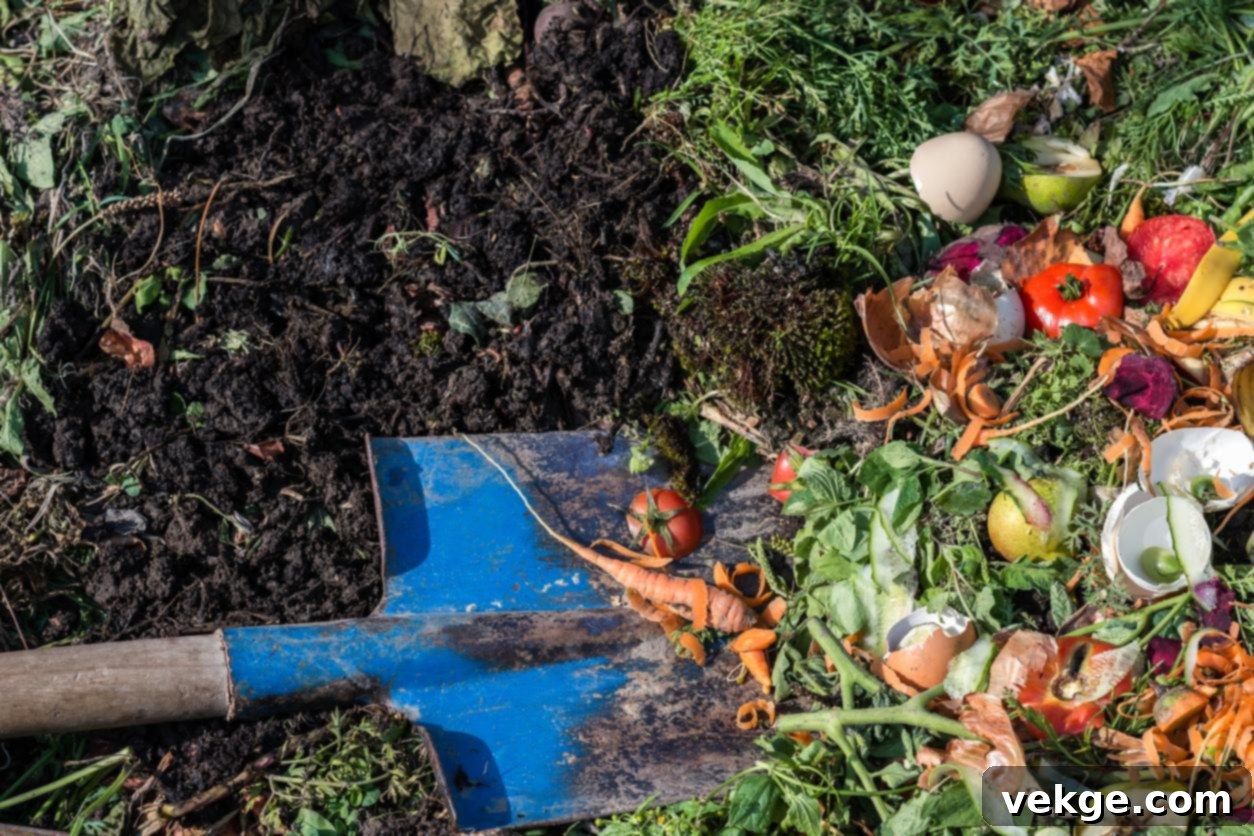
An eco-friendly off-grid lifestyle is incomplete without a robust and responsible waste management system. The fundamental principle is to minimize consumption, prioritize products designed for longevity, and choose items that can be easily recycled, reused, or composted. Thinking critically about what enters your home is the first line of defense against waste accumulation.
One of the most effective ways to manage organic waste is by creating a composting station. If you have the space, a simple backyard compost pile, a vermicomposting (worm farm) bin, or a tumbler can transform food scraps, garden waste, and other organic materials into nutrient-rich compost. This not only diverts waste from landfills but also provides a valuable soil amendment for your garden, creating a beautiful closed-loop system. Learn what can and cannot be composted to keep your system efficient and odor-free.
For non-organic waste, diligently adhere to the “reduce, reuse, recycle” mantra. Reduce your consumption by buying in bulk, choosing products with minimal packaging, and opting for reusable items over disposables. Reuse everything you can, giving new life to jars, containers, and materials. For items that must be discarded, research your location’s recycling possibilities. Identify nearby recycling facilities and understand their accepted materials. For remote off-grid locations, this might mean storing recyclables and making occasional trips to larger towns. Be consistent in how you sort and dispose of your waste, making it a ingrained habit. Additionally, consider how to manage more challenging waste, such as old batteries (from solar systems or devices), electronics, and hazardous chemicals, ensuring they are disposed of safely and responsibly at designated collection points. A truly sustainable off-grid home leaves minimal trace, and effective waste management is central to achieving this goal.
Conclusion: The Rewarding Journey of Sustainable Off-Grid Living
Living off the grid is much more than just a housing choice; it’s an ongoing adventure, a commitment to self-reliance, and a profound declaration of environmental stewardship. Fortunately, modern advancements and a growing community of off-gridders mean you can blend the liberating experiences of this lifestyle with the comfort of your home and a deep dedication to sustainability. By carefully considering your location, embracing renewable energy, implementing mindful water management, cultivating your own food, and developing responsible waste strategies, you are actively contributing to a healthier planet and a more resilient future.
We hope these tips have inspired and equipped you to make your off-grid lifestyle even more eco-friendly. Every conscious decision, from installing solar panels to composting your food scraps, plays a vital role in reducing your carbon footprint and fostering a harmonious relationship with nature. Embrace this journey with enthusiasm, knowing that you are doing your part for the planet directly from the heart of your sustainable off-grid home. The rewards of living in tune with the earth are immeasurable, offering not just independence but also a profound sense of purpose and peace.
